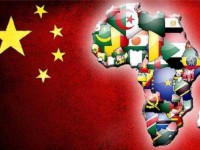Robert I. Rotberg, Founding Director of Program on Intrastate Conflict, Harvard Kennedy School
Oct 20, 2016
Zimbabwe’s Central Mashonaland province once produced abundant quantities of high-quality tobacco. Production then dropped heavily when Zimbabwean politicians took control of the farms and neglected the lands. But this may change, as Mugabe recently leased five large farms in the area to Chinese entrepreneurs. This development may increase tobacco production and help uplift the local economy.
Robert I. Rotberg, Founding Director of Program on Intrastate Conflict, Harvard Kennedy School
Aug 24, 2016
China is South Sudan’s last best hope. Given the interminable bloodletting and brutal fratricide that engulfs Africa’s youngest nation, and given the inability of the African Union and United States to broker an effective peace, intervention and assistance by China may provide South Sudan with its only viable lifeline.
Robert I. Rotberg, Founding Director of Program on Intrastate Conflict, Harvard Kennedy School
Aug 01, 2016
Without Chinese help, sub-Saharan Africa’s power drought, its daily blackouts, and its ability to attract foreign investment would suffer. Fortunately, China is providing an essential part of the answer in terms of actual construction of new facilities and the finance that will present Africa new supplies to power and upgrade infrastructure.
Robert I. Rotberg, Founding Director of Program on Intrastate Conflict, Harvard Kennedy School
Mar 31, 2016
In mid-March, Mainland China and the Gambia re-opened official links that had been severed since 1995 when the Gambia recognized the Republic of China (Taiwan) instead of the People’s Republic of China (PRC). China will have undoubted leverage for boosting the Gambia’s economic growth.
Jin Liangxiang, Senior Research Fellow, Shanghai Institute of Int'l Studies
Mar 29, 2016
Beijing employs economic and diplomatic tools to promote security in Africa while Western countries tend to rely on military means. While international pundits often anticipate Chinese military action in Africa, the country believes in non-interference in external affairs, with officials citing history’s record that military interventions generally become part of the problem, not the solution.
Robert I. Rotberg, Founding Director of Program on Intrastate Conflict, Harvard Kennedy School
Jan 06, 2016
China offered a $60 billion package to support African development; individual Africans, especially those who are invited to train in China and those who Chinese technicians will assist in Africa, are sure to have their prospects enhanced.
Doug Bandow, Senior Fellow, Cato Institute
Jan 04, 2016
Western fears of Chinese domination in Africa appear overblown. African peoples have benefited economically, but unevenly; African dictators sometimes have benefited politically, though not crucially. While America’s role has shrunk, the U.S. remains the largest, most productive, and most attractive economic partner for African nations.
Sajjad Ashraf, Former Adjunct Professor, National University of Singapore
Dec 29, 2015
Chinese leadership’s recent engagements points to their persistent pursuit of its vision of connectivity named One Belt One Road (OBOR). New areas are now being added to the list.
He Wenping, Senior Research Fellow, Charhar Institute and West Asia and Africa Studies Institute of the China Academy of Social Sciences
Dec 16, 2015
While Chinese demands for raw materials and bulk stocks such as oil and gas has decreased at the country’s economy evolves, Beijing continues to be vested in Africa’s development and trade with the region. That commitment is not only a boost for world peace, stability and development but supports the smooth implementation of America’s African strategy.

Dec 10, 2015
While new agreements mean the two countries areas of interest will more often overlap and even clash, there is also new impetus for cooperation, such as in preserving peace and security in Africa, developing the African market and building Washington and Beijing’s respective global leadership roles.
Back to Top

- China-US Focus builds trust and understanding between the U.S. and China through open dialogue among thought leaders.
- Our Offerings
- Topics
- Videos
- Podcasts
- Columnists
- Research Reports
- Focus Digest
- Stay Connected
-
Thanks for signing up!
- Get the latest stories from China-US Focus weekly.